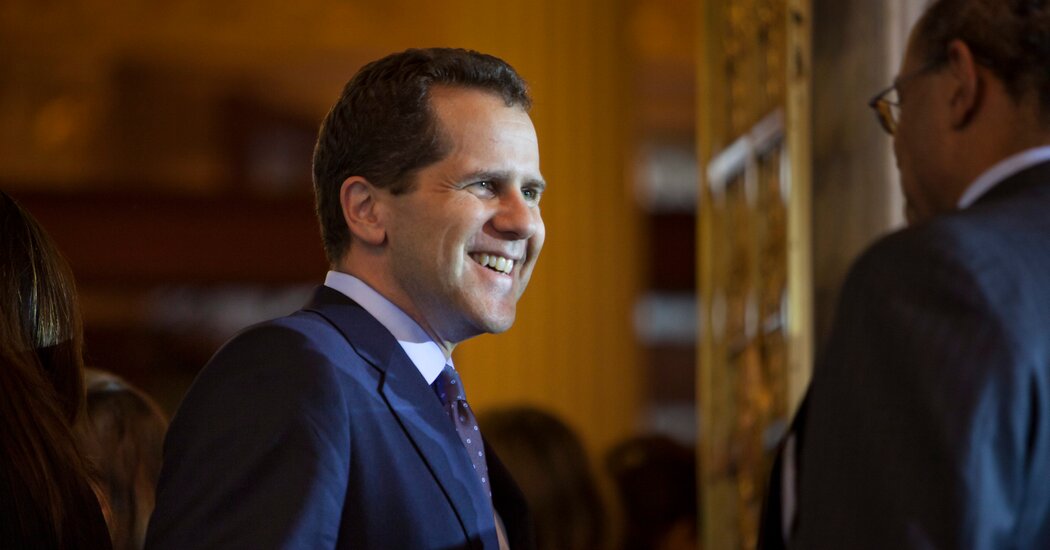
The Biden administration said on Friday that it intended to nominate Michael S. Barr, a law professor and a former Obama administration official, to be the Federal Reserve’s vice chair for supervision.
The position — one of America’s top financial regulatory spots, because it anchors the oversight of large bank holding companies including Bank of America and Goldman Sachs — has proved to be a particularly thorny one to fill.
The administration’s initial nominee, Sarah Bloom Raskin, failed to win Senate confirmation after Republicans took issue with her writing on climate-related financial oversight and seized on her limited answers about her private-sector work. Senator Joe Manchin III, Democrat of West Virginia, joined Republicans in deciding not to support her, ending her chances.
Mr. Barr, the dean of the University of Michigan’s public policy school, could have better luck in securing widespread support because he is seen as more moderate. But his path to confirmation could still prove challenging.
A lawyer and regulation expert, Mr. Barr was a leading contender to be nominated as comptroller of the currency, but ran into opposition from progressive Democrats. Some of those complaints centered on his work in government: As a Treasury Department official during the Obama administration, Mr. Barr played a major role in putting together the Dodd-Frank Act. The law revamped financial regulation after the 2008 financial crisis and created the role to which he is now being nominated. But during the comptroller debate, some faulted him for opposing even more stringent measures for big banks.
Other opponents focused on his private-sector work with the financial technology and cryptocurrency industry.
But President Biden described Mr. Barr on Friday as a qualified candidate who would bring years of experience to the Fed job.
“Barr has strong support from across the political spectrum,” the president said in a statement announcing the decision. He noted that Mr. Barr had been confirmed to his Treasury post “on a bipartisan basis.”
And several key lawmakers made it clear that they would support him.
Senator Sherrod Brown, the Ohio Democrat who chairs the Senate Banking Committee, said in a statement, “I will support this key nominee, and I strongly urge my Republican colleagues to abandon their old playbook of personal attacks and demagoguery.”
Likewise, Senator Elizabeth Warren, Democrat of Massachusetts and a progressive, signaled that she would get behind Mr. Barr’s candidacy. Mr. Barr and Ms. Warren played key roles in creating the Consumer Financial Protection Bureau.
“I intend to support President Biden’s nominee for this important role at the Fed,” Ms. Warren said in a statement.
Ian Katz, managing director at the research and advisory firm Capital Alpha, on Friday put Mr. Barr’s chance of confirmation at 60 percent, based on the fact that he was more moderate than Ms. Raskin and a known entity to the banking industry. Republicans might still roundly oppose him, though, so Mr. Katz said his confirmation was no “slam dunk.”
If he does not garner Republican votes, Mr. Barr will need to maintain full Democratic support to pass the Senate.
Mr. Barr completes Mr. Biden’s slate of candidates for the central bank’s five open positions.
The other picks — Jerome H. Powell for another term as Fed chair, Lael Brainard for vice chair, and Lisa D. Cook and Philip N. Jefferson for seats on the Board of Governors — await confirmation. Those nominations have gotten past the Senate Banking Committee, the first step toward confirmation, and a vote before the full Senate is expected in the coming weeks.
Mr. Biden said he would work with the committee to get Mr. Barr through his first vote quickly, and he called for swift confirmation of the others.




